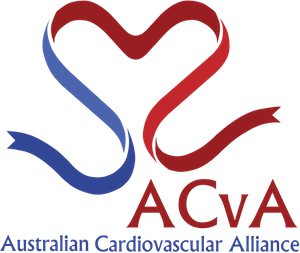Supporting Australian Cardiovascular Research
Note: This pilot project completed in 2023. Work is now continuing as part of the Australian Cardiovascular disease Data Commons project.
Background
One Australian suffers a heart attack every 10 minutes and there were an estimated 42,700 deaths in 2021 among people with underlying cardiovascular disease.¹ Coronary artery disease (CAD) is the most frequent cause of premature cardiovascular death and major driver of disability in those who survive. Despite the underlying atherosclerotic plaque developing over years, many patients will have had no warning symptoms. While some patients may have been working with their primary care physician to reduce the impact of known modifiable risk factors (hypertension, cholesterol, diabetes and smoking), over ¼ of heart attack patients present with life-threatening events despite the absence of such risk factors.
The widespread availability of high throughput platforms to generate genomics, metabolomics, proteomics and immuno-phenotyping data along with image processing, machine learning, and systems biology pipelines means the time is now “right” for transformational leaps in biomarker discovery informed by these technologies which can lead to the protection of patients at risk of CAD.
Through a number of recently funded initiatives the Precision Medicine Flagship of the Australian Cardiovascular Alliance (ACvA) is bringing together a multidisciplinary team with an approach that is required to make the next leap in the protection of patients at risk of CAD. Several large studies are currently being on-boarded to the Flagship, but to date, each of these has been undertaken independently of each other, and there is currently no efficient way to identify cross-study cohorts for combinatorial analysis.
Pilot pROJECT OUTLINE
The Australian BioCommons collaborated with the ACvA Precision Medicine Flagship partners to help solve this problem by establishing a system that:
Provides a framework where a data dictionary with a core set of harmonised CAD variables can be applied across the associated studies
Allows for the efficient, ethical, secure and safe management of data files (storing, security, access control, findability, shareability/interoperability with approved collaborators)
Is aligned with international systems that utilise tools/infrastructure that adheres to global standards for human data sharing.
The system chosen for deployment was Gen3 - a transformative open source software suite that allows data to be received, managed, described, quality controlled and shared with authorised and authenticated individuals. Gen3 has been used extensively in the USA to underpin many large NIH-funded Genomic and Imaging Datasets that house and describe data derived from hundreds of thousands of humans, including the National Heart Lung and Blood Institute’s BioData Catalyst. Access to the actual data files is always managed by the relevant Data Access Committee (DAC) for each dataset, and controlled by various tools which are part of the Gen3 system. Data held in a Gen3-based storage system can also be directly linked to highly secure and scalable cloud-based analysis systems such as Terra or Seven Bridges.
This project (Oct 2021 - Dec 2022) laid the necessary groundwork for the ACvA Precision Medicine Flagship to establish the systems it needs for management and secure sharing of human omics data holdings between the Flagship research collaborators, including those based at the University of Sydney and the Baker Heart and Diabetes Institute.
Achievements
The pilot project:
Supported the ACvA Precision Medicine Flagship group to deploy a basic Gen3 instance
Defined a common Data Dictionary across the associated studies, and represented this in the Gen3 framework
Generated synthetic non-sensitive data (derived from the associated studies), and used this during security testing and user testing
Performed initial end user testing of the systeam to assess basic functionality and operation.
Concurrent and parallel activities were undertaken by the Precision Medicine Flagship to develop appropriate data governance across the Flagship and to develop data sharing models that may be employed by the Flagship partners into the future.
This activity was funded through NCRIS funding via Bioplatforms Australia, Medical Research Future Fund (MRFF) funding to the University of Sydney (MRFF 2021 Frontier Health and Medical Research grant: New Frontiers in Personalised Prevention of Coronary Artery Disease), Heart Foundation Funding to the Baker Heart and Diabetes Institute (Predictive Modelling Strategic Grant), and additional contributions from the University of Sydney and the Baker Heart and Diabetes Institute.
The project formed part of the Australian BioCommons Human Genome Informatics activity.
Reference:
Australian Government Australian Institute of Health and Welfare, ‘Heart, stroke and vascular disease: Australian facts’ web report, accessed September 22, 2023.
Project partners:







